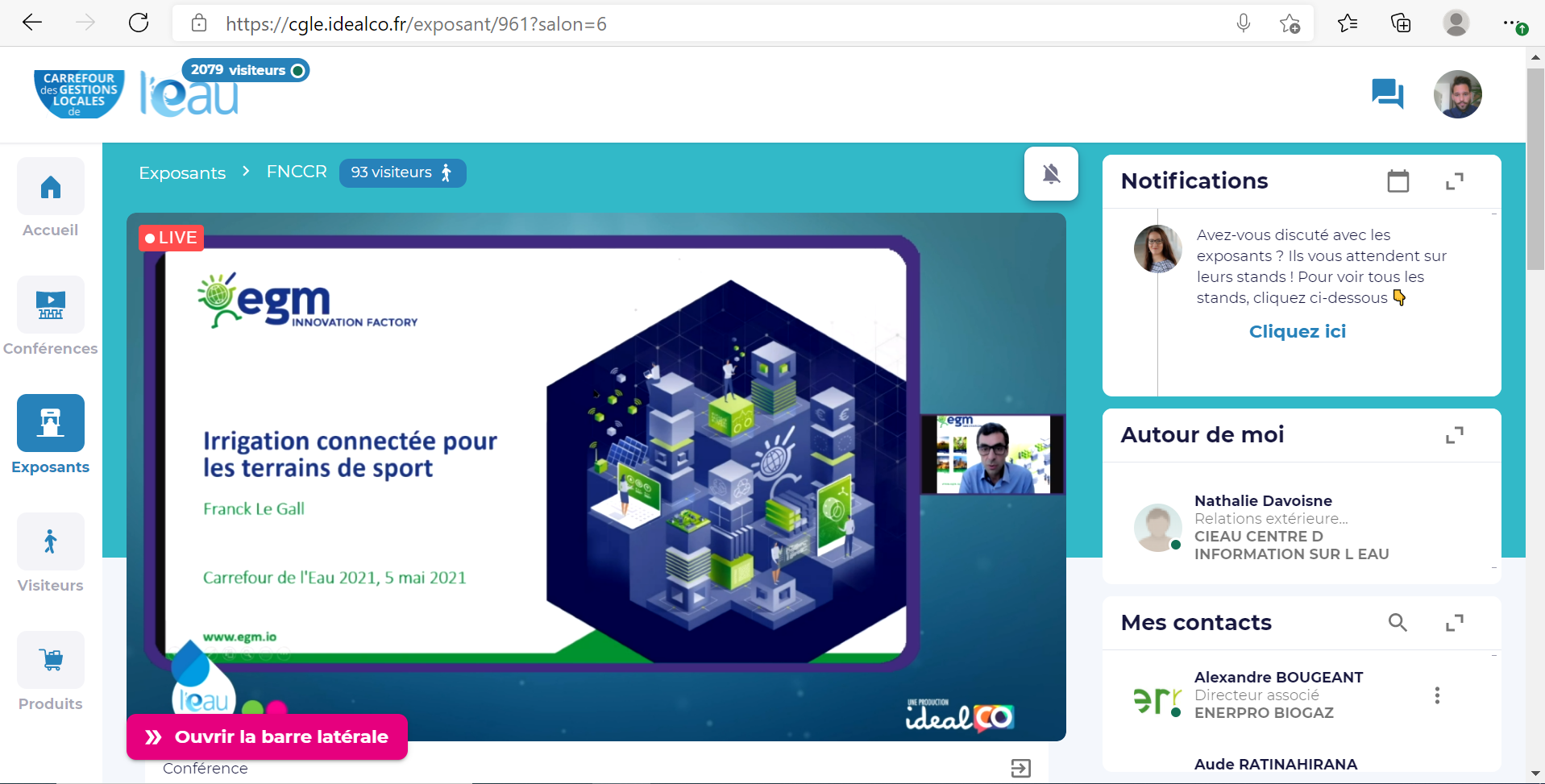“Identifying, promoting and rewarding one time or long-term initiatives and the installation of effective and reproducible technical solutions to reduce water consumption” was the stated objective of these Trophies awarded by the Water Savings Club, presented at the « Carrefour de l’eau 2021 ». This Club is led by the FNCCR and supported by the Minister of Ecology. The objective is to reduce water withdrawals by 10% over 5 years and 25% over 15 years.
The project led by the city of Saint-Quentin, Hostabee and EGM has received yesterday the support and the approval of a Jury composed of representatives of the FNCCR, representatives of the Ministry of the Ecological Transition and representatives of the platform IdealCO.
This project to optimize the consumption of water is born from a desire to modernize the management of maintenance of the stadiums of the city. Saint-Quentin had noticed that :
- water consumption can be considerably reduced by dosing it according to the real water needs of the grass. It allows eliminating a recurrent tendency to over-water the ground.
- operations associated with the maintenance of the lawn of a stadium (watering, mowing, use of fertilizers, mechanical operations) can be greatly simplified and reduced to the strict minimum thanks to an autonomous and remote control system of various equipments (mower, sprinklers) as well as by obtaining a better quality lawn allowing to reduce interventions on site (fertilization, mechanical operations)
A control system involving different data sources was therefore developed:
- data from sensors measuring soil moisture
- weather data
- the schedule of the mowing robot
- the stadium schedule
From these 4 heterogeneous data sources, Hostabee and EGM built a decision support application to plan and optimize watering operations on sport fields.
The application is an interoperable digital platform that provides the functions of sending, transmitting, storing, integrating, harmonizing and visualizing data based on the FIWARE context broker of EGM, Stellio.
The city wanted an agnostic platform based on open standards to ensure interoperability between the various systems involved in the project and to facilitate the integration of additional functionalities and equipment. This application takes the form of a watering schedule able to make recommendations, validate them and monitor their proper execution.
With the deployment of this solution, the city of Saint-Quentin aims to reduce his water consumption by 30% on average. The achievement of this objective will have to be evaluated over several years to take into account the variability of the climate from one year to the next. The city of Saint-Quentin also expects to obtain effects induced by optimized and reasoned watering. It could be possible to obtain a better quality lawn and help to reduce the need of fertilizers and mechanical interventions. It is therefore a question of creating a virtuous circle based on better management of the water cycle.



